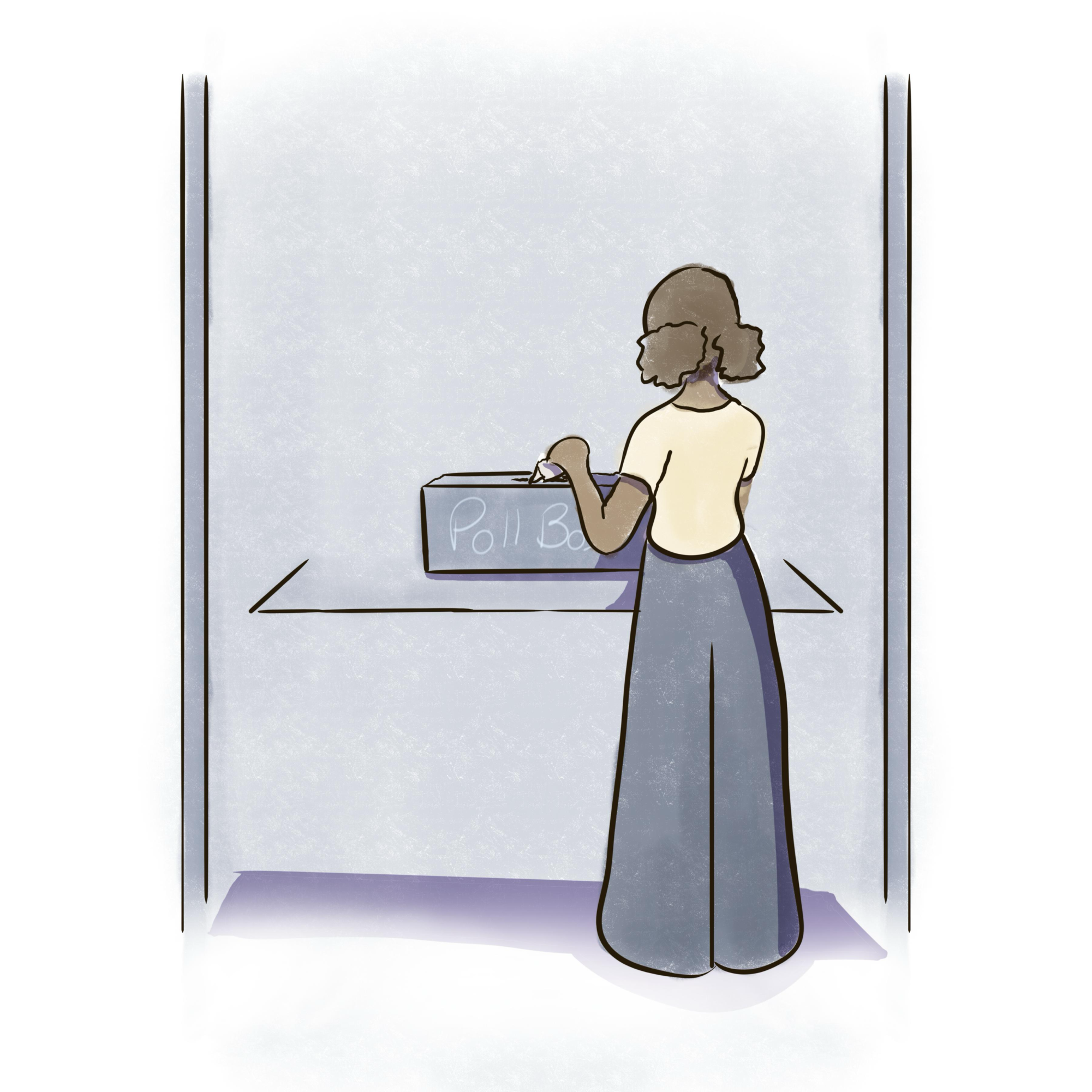A student’s guide to registering and voting in the 2024 presidential election


For many college students, voting in the 2024 presidential election will be their first experience at the voting booth. To be ready for the Nov. 5 election, students must register to vote by Oct. 21.
“In terms of registering to vote, you can register online, which is easier for a lot of folks,” Allegheny County communications director Abigail Gardner said. “I’m sure there’ll be tablets on campus registering people and papers as well. If you really want to take matters into your own hands, you can come downtown to the county office building, which is on Forbes behind City Hall, and register in person.”
After registering, students can check their voting location on the Commonwealth of PA website.
“We have [around] 1300 polling locations in Allegheny County,” Gardner said. “With every election, there’s going to be something like this church closed or this school is under construction, and we’re going to have to find a new polling place for people, so it’s always good to double check.”
When deciding a candidate to vote for, Gardner said she recommends checking the candidate’s website and trusted news sources for accurate information.
“You have to be careful out there with misinformation online,” Gardner said. “Social media is not a very reliable place. In terms of media literacy, I think the best thing to do is check a candidate’s website and trusted news sources that you recognize. Those will have bylines by reporters that are not AI-written.”
For nonpartisan resources, Gardner recommended checking the League of Women Voters website, which provides guides for resources like candidate’s policies.
Amy Kleissas, director of civic education for the League of Women Voters, said the website’s guides have commonly answered questions about the voting process and candidates.
“If not that, at the very least, you can look at the candidate’s website and see what their platform is,” Kleissas said. “You can also find a candidate and see who endorses them and who is giving them money and research them.”
After researching and arriving at the polling place on election day, Kleissas said it’s important to remember to bring your state-issued ID to ensure you can vote.
“Sometimes students forget, and if you don’t want to leave and go home, you can simply complete a provisional ballot, and they will be able to check and see that you are registered, but it’s easier to just remember your ID the first time,” Kleissas said.
If students are not able to vote in person, they can also apply for a mail-in ballot by Oct. 29. Out-of-state students can either vote in Pennsylvania or request a mail-in ballot for their home state.
“They’ll mail the ballot back to you, which you can complete and send it back in, or you can take it in person to the election office,” Kleissas said.
Once mail-in ballots are available, Kleissas said students can go to their election county office and vote in advance.
“If you haven’t applied for a mail-in ballot you can apply for a ballot,” Kleissas said. “They’ll figure out what your precinct is and print your ballot with the candidates. You can vote in a little cubby and turn it back in, or you vote and go back later. Essentially, it’s early voting and you’ll know your vote was done.”
While Kleissas said she always encourages people to vote, she also recommended students apply to become a poll worker.
“It’s wonderful to be a poll worker,” Kleissas said. “With online training you get paid $170. Without it, you get paid $150. You can be at your own polling place or they’ll send you to wherever needed. It’s a great learning experience, and you’ll figure out how secure elections are when you do this.”
For students looking to further increase their involvement with the voting process, Pitt Votes offers a variety of engagement opportunities along with resources to register and vote.
“PittVotes is a non-partisan organization, meaning we do not endorse or support specific candidates or campaigns,” Janine Fisher, director of marketing and communications at the University of Pittsburgh, said. “Students interested in participating in partisan efforts should explore student organizations through the SORC.”
University officials made the Pitt Votes initiative in 2019 with the goal of increasing registration and voting rates at Pitt.
“In recent years, the combined efforts of the University on an institutional level, along with grassroots mobilization on the student level, has led to historic levels of voter registration and voting rates,” Fisher said. “As of 2020, the voter registration rate at the University of Pittsburgh was 90.1%, and the voting rate among the student population was 78.5%.”
Kleissas reminded students that it’s an important election, so they need to remember to vote.
“It’s a very important election,” Kleissas said. “Both the legislatures could flip. The Pennsylvania general assembly is close, and so is the US Congress. So don’t just vote for the president, but remember to vote down the ballot.”
Recent Posts
A Good Hill to Die On // The motivation we all need
In this post of “A Good Hill to Die On,” staff writer Sierra O’Neil discusses…
Who Asked? // Is it really the damn phones?
This installment of Who Asked? by staff writer Brynn Murawski describes her brief journey limiting…
Students are ‘upset, but not surprised’ over denial of gender affirming care at UPMC CHP
Pitt students and LGBTQIA+ members express their concerns about the recent denial of gender affirming…
Take Madness Final Four | Battle of Pennsylvania, 412 and Just Outside of Philly clash
Welcome to the Final Four of Take Madness! We are down to four talented writers,…
Column | Best Sports Environments in Pittsburgh
Pittsburgh is undoubtedly one of the best sports cities in America. A deeply passionate fanbase…
Chalk is all the talk: Previewing the NCAA men’s Final Four
For the first time since 2008, all four first seeds have made the men’s Final…
